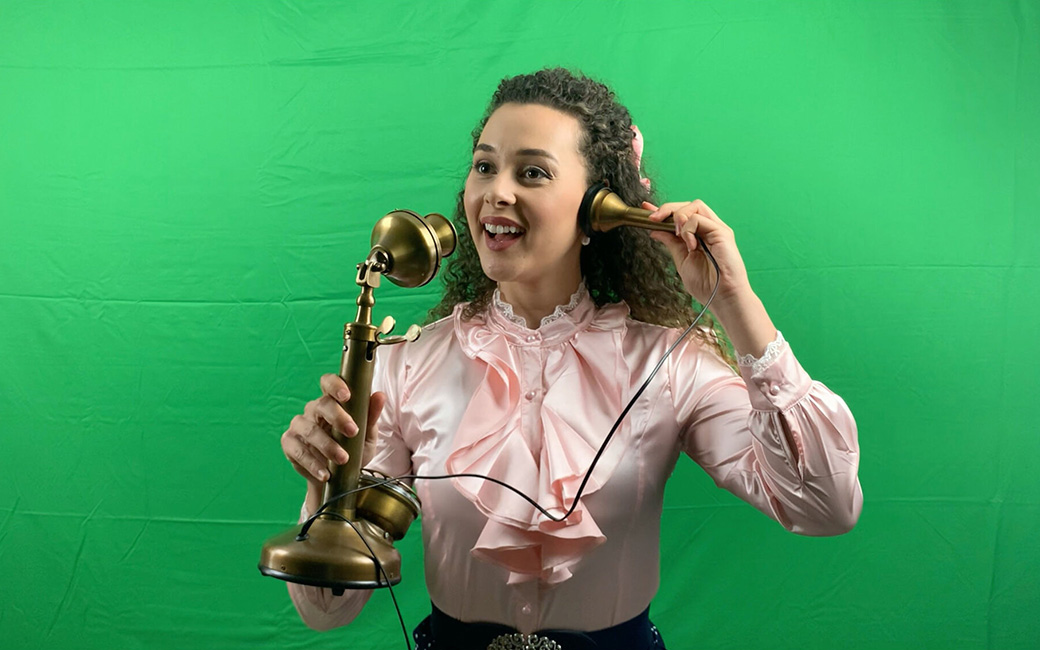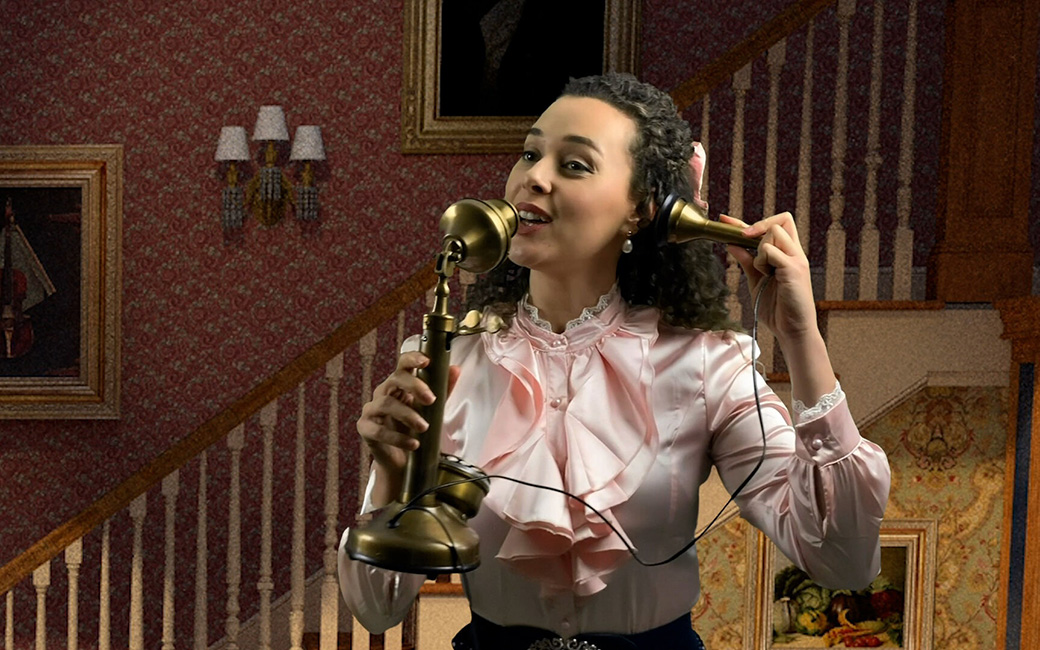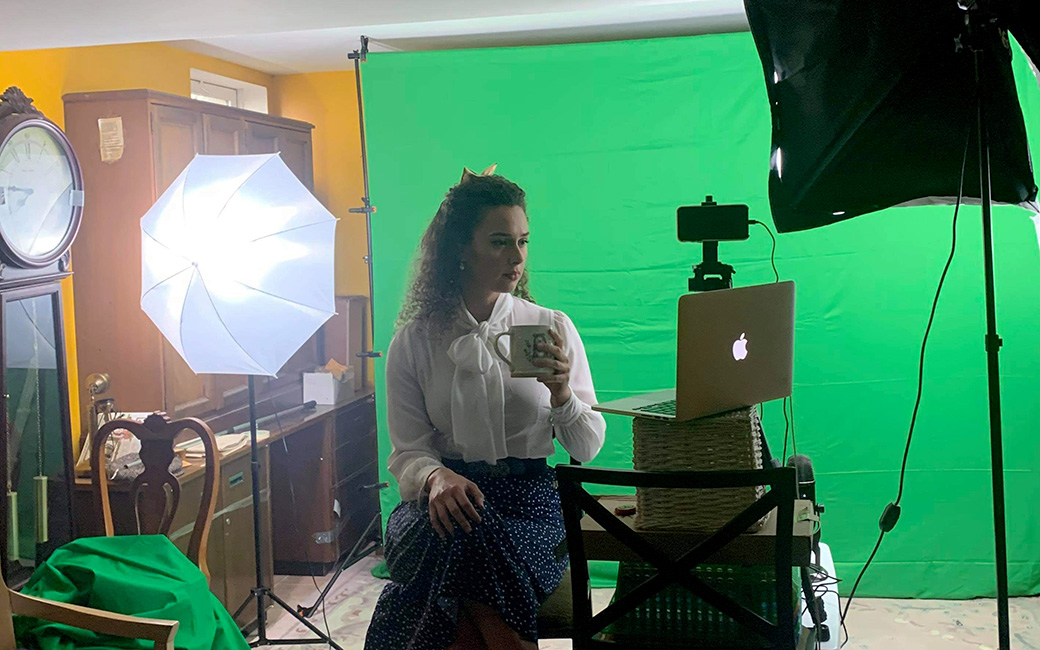
From the stage to the screen: Shereen Ahmed ’15
With her national tour on hold, Broadway actor Ahmed stars in virtual production of ‘Meet Me in St. Louis’
By Rebecca Kirkman and Ron Santana on December 21, 2020
When we last spoke with Shereen Ahmed ’15, she was embarking on the Lincoln Center Theatre’s national tour of “My Fair Lady,” where she broke boundaries as the first woman of color to play the role of Eliza Doolittle in a major American production.
But less than three months into the national tour, as the crew arrived in Columbus, Ohio, the novel coronavirus pandemic shut down theaters across the country and put the production on hold.
“The show must go on—that’s what we always live by as performers,” Ahmed says, noting that the tour plans to resume in late 2021. “But right now the show just can't, for the safety and the health of our audience and cast and crew members.”
A native of Perry Hall, Maryland, Ahmed studied voice performance and then sociology, anthropology and criminal justice at Towson University while taking classes in ballet and theater. After graduating with a concentration in criminal justice in winter 2015, Ahmed spent a year and a half performing on a cruise line.
An open casting call in late 2017 landed her a spot in the Broadway ensemble for “My Fair Lady” at the Lincoln Center Theater. A year into the show’s run, Ahmed became an understudy for the role of Eliza Doolittle, making her debut in spring 2019. She assumed the lead role on the national tour that December.
After months without performing, Ahmed had the opportunity to star in a digital production of “Meet Me in St. Louis” with the Irish Repertory Theatre, an off-Broadway theater in New York City.
“It was the first time I was really creative since the shutdown in March,” she says of playing Esther Smith in “Meet Me in St. Louis,” which opened on Dec. 11 and runs through Jan. 2.
From a makeshift studio in her parents’ home, Ahmed acted over Zoom in front of a greenscreen and recorded footage with her iPhone. “There were lot of internet connection failures, a lot of technical difficulties. But we all got through it. It was like we were all each other’s technical directors, lighting managers and sound designers.”
Without the ability to connect with her co-stars in person or feed off the audience’s energy, the digital production offered new challenges. “It was something that has made me a much better actor moving forward,” she says. “Because I couldn't rely on those tools that I'm used to, I had to become a child again, and imagine this world in my head with just this green screen in the back, and that was so much fun.”
Her advice for current students?
“Don’t give up on your dreams. Trust that this is all part of the story and all part of your journey,” she says, noting that she will never play Eliza Doolittle the same way going forward. “We've all experienced this collective trauma of 2020. It just makes us better artists when we’re able to dig deep and use that resiliency that we have gained from this wild year in our art.”

